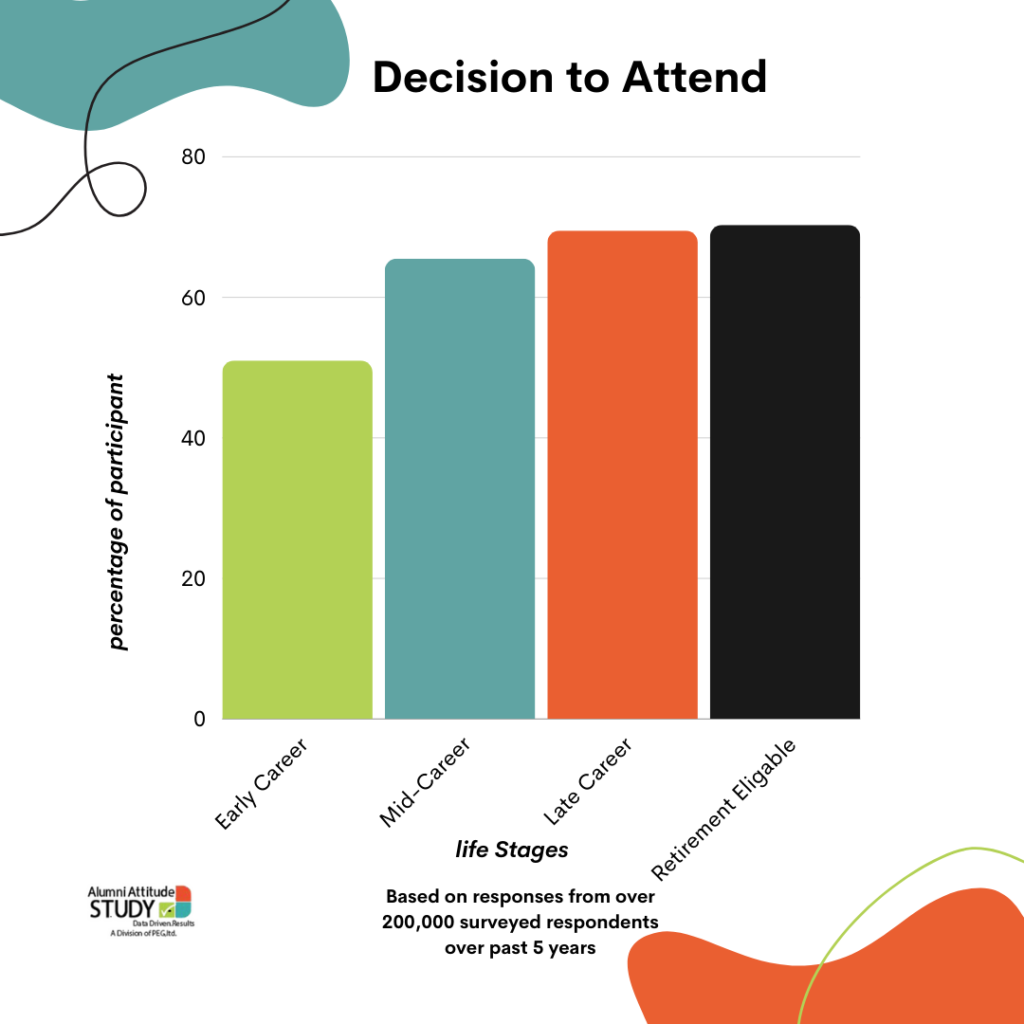Over the last twenty years, the team at PEG. Ltd has collected much data on alumni perceptions through the Alumni Attitude Study. Recent surveys have uncovered a noteworthy trend among college graduates: individuals in their careers’ early and mid stages tend to express less satisfaction with their decision to attend their alma mater than those further along in their professional journey.
This discrepancy raises questions about the factors at play and how external forces such as the COVID-19 pandemic and the polarization of opinions on the value of higher education might be shaping alum sentiment.
Although the current job market is robust, the landscape during and immediately following the COVID-19 pandemic was difficult. Students had questionable experiences during college that were fundamentally different than graduates of previous years.
The polarization of opinions on the value of higher education has added another layer of complexity to alum perceptions. Debates surrounding rising tuition costs, student debt, and the perceived relevance of specific academic programs have intensified in recent years, contributing to a broader skepticism about the ROI of a college degree.
For some early and mid-career alumni, these debates may fuel doubts about the wisdom of their educational choices and lead to a reevaluation of their alma mater’s role in preparing them for the workforce. Conversely, late-career and retirement-eligible alums, who have already established themselves in their careers, may be less affected by these debates and more inclined to view their college experience through a nostalgic lens.
While recent graduates may face uncertainties and challenges that affect their perceptions of their alma mater, ongoing efforts by institutions to support alums through these transitions can play a crucial role in fostering a stronger sense of connection and appreciation for the educational journey.
